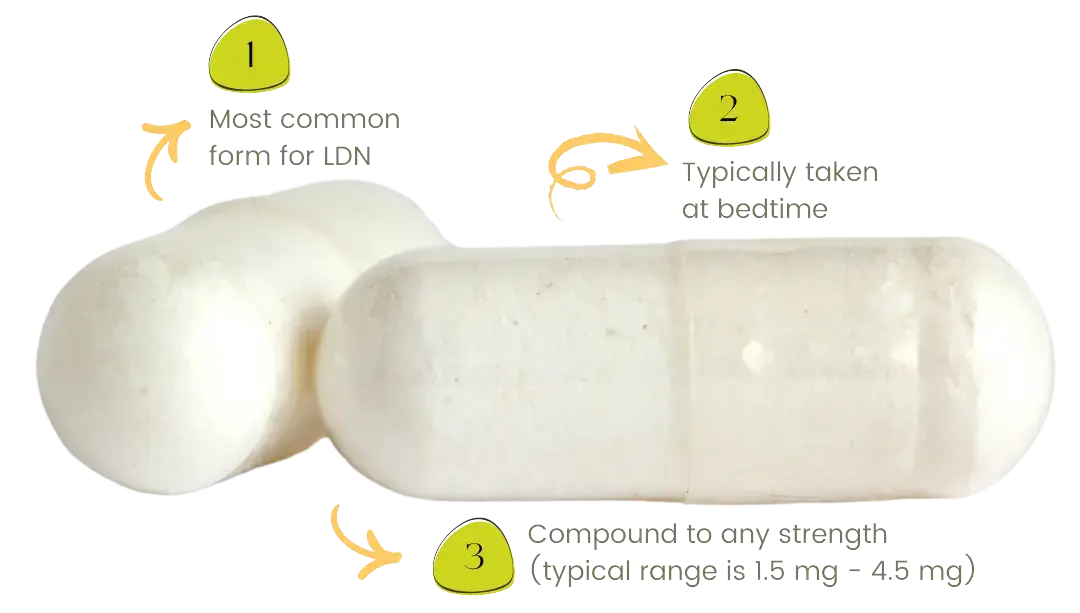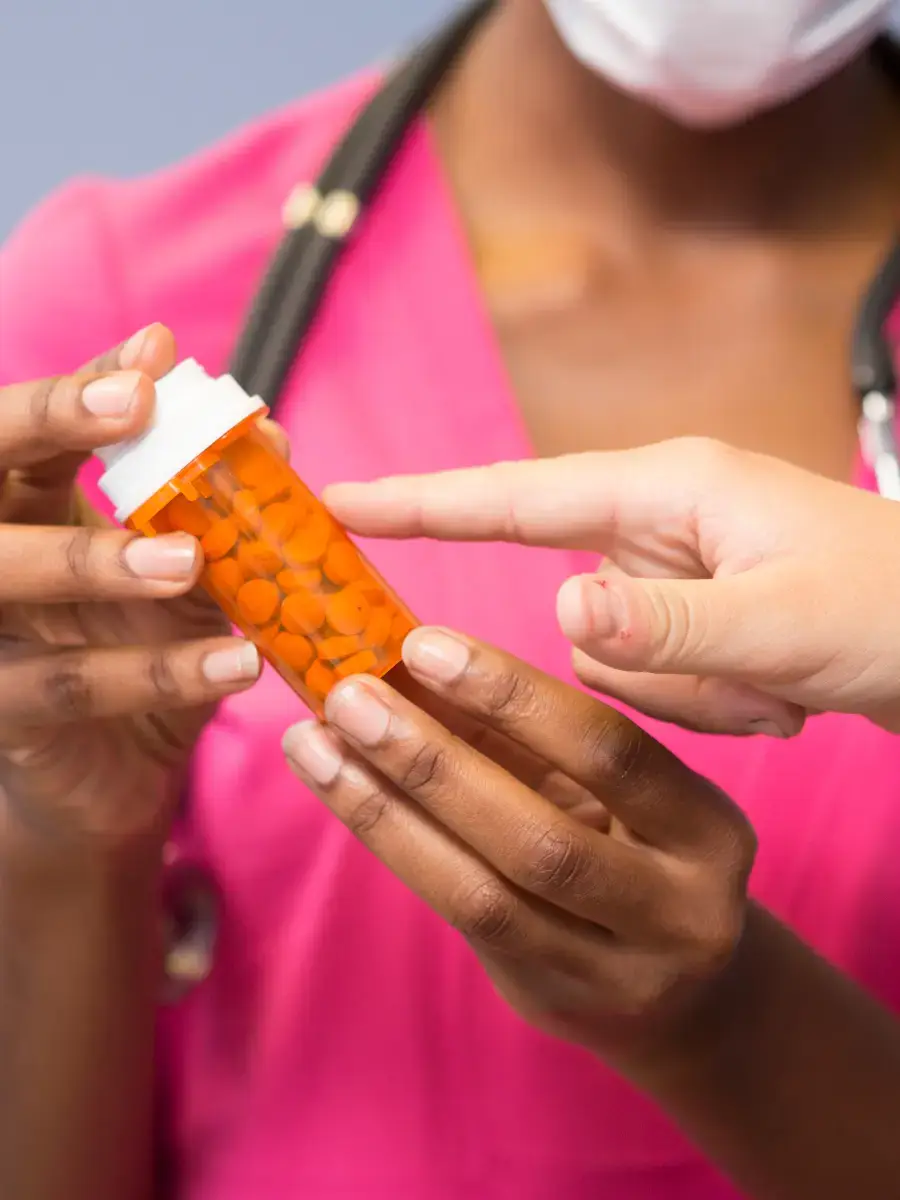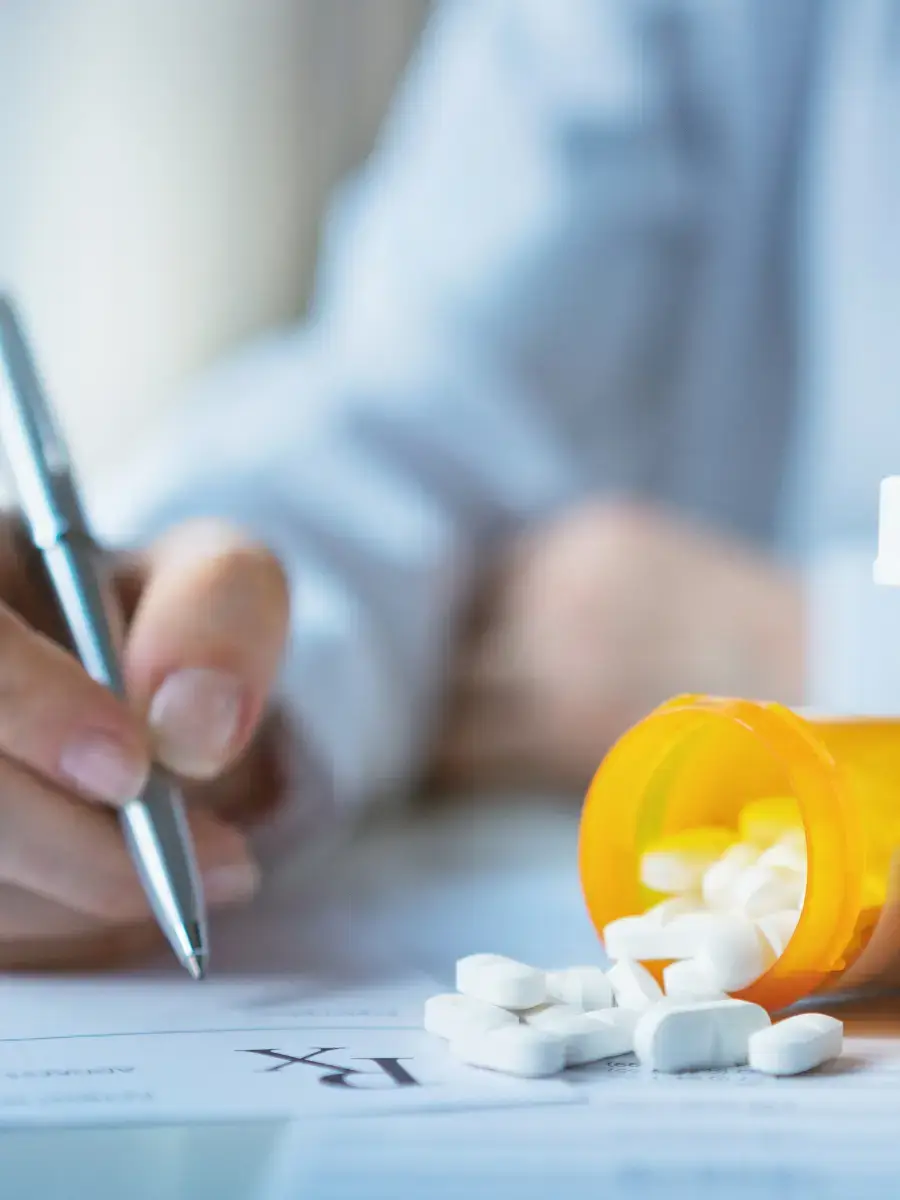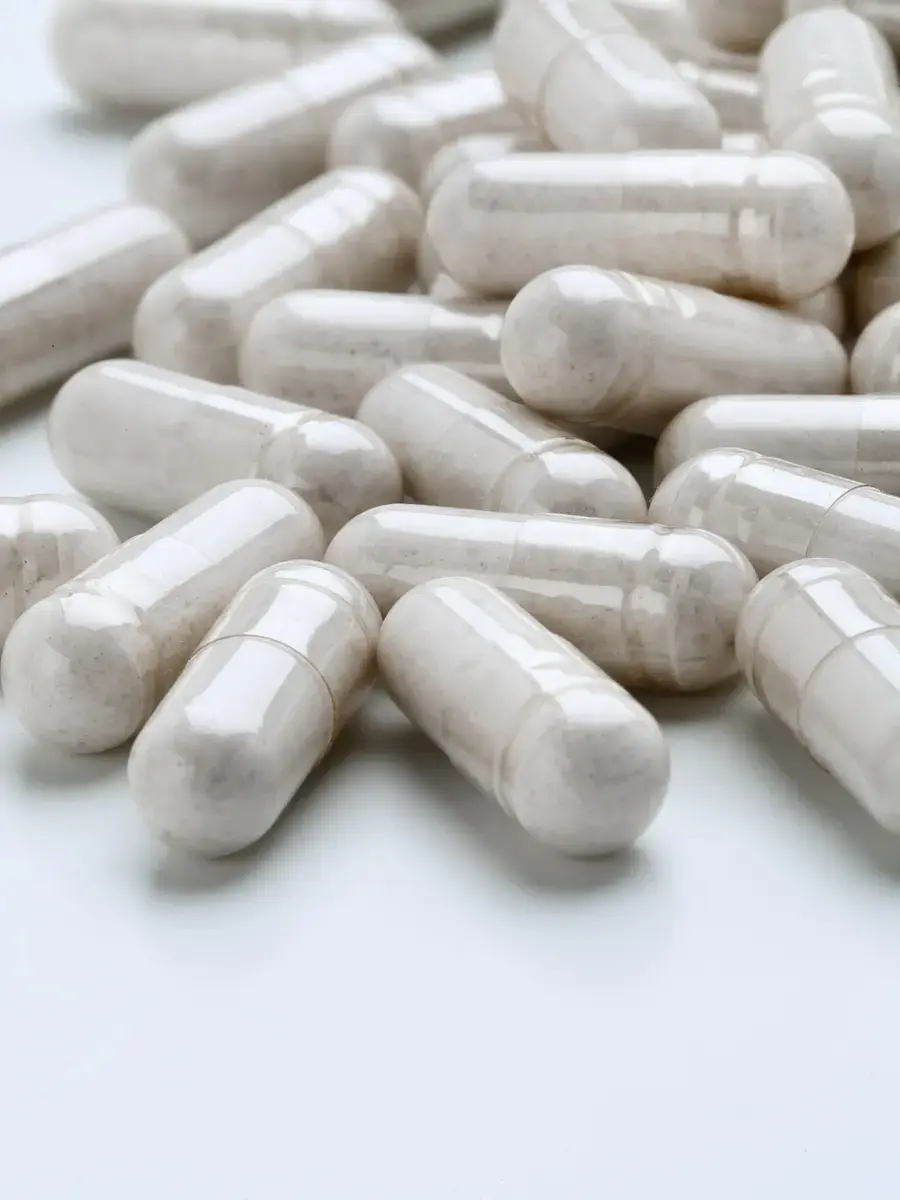
Naltrexone is a drug commonly used to reduce alcohol and opioid dependence by blocking the effects of opioids on the brain. Doctors usually prescribe it at a dose of 50 mg.
In contrast, low dose naltrexone (LDN) is used at much lower doses to address different symptoms and illnesses. Doses for LDN typically range from 1.5 mg to 4.5 mg. While traditional naltrexone focuses on addiction treatment, LDN is more about harnessing the drug’s immune-modulating effects to address a broader range of health conditions.
LDN is an off-label use of naltrexone, meaning a traditional pharmacy cannot prescribe it. A compounding pharmacy is required since dosage sizes for LDN are lower than those approved for the drug.
Research explores LDN for fibromyalgia, Crohn’s disease, MS, chronic fatigue, psoriasis, and long COVID.
LDN is an off-label medication and can only be offered by compounding pharmacies. Always discuss with your doctor first.
Most are mild: vivid dreams, sleep disturbances, or temporary headaches.
These often fade within weeks. We adjust doses to minimize reactions.
Responses vary. Some see changes in weeks but in general most will experience the full effects after 2 months of use.
Consistency is key and it is important to track symptoms and work with your prescriber.
For most forms of the medication (troches, capsules, etc.) it should be stored at room temperature in airtight containers away from light and humidity.
Avoid bathrooms and other areas in the home where temperatures and humidity fluctuate.
Most plans don’t cover off-label compounded medications such as LDN. However, we do provide transparent cash pricing.
Some FSAs/HSAs accept LDN receipts. We are always happy to supply documentation.
LDN works by modulating the immune system. It temporarily blocks opioid receptors, which leads to a rebound effect that increases the production of endorphins and enkephalins.
These are the body’s natural painkillers and immune system regulators. Researchers believe that increased endorphin levels help reduce inflammation and improve immune function. Because of this, LDN is being studied for conditions like multiple sclerosis, Crohn’s disease, fibromyalgia, and more.
By influencing these pathways, researchers believe LDN can offer relief from symptoms related to autoimmune disorders, chronic pain, and even some neurodegenerative diseases.

Research and clinical expertise suggest that LDN may be beneficial for a variety of conditions, such as:
LDN’s anti-inflammatory properties greatly help patients suffering from autoimmune diseases like Crohn’s disease.
LDN can increase the production of dopamine in the body and create a positive mental state.
LDN can inhibit glial cell irritation due to its anti-inflammatory effects, reducing the significance of chronic pain.
LDN has helped patients lose weight by suppressing appetite, reducing inflammation, and increasing endorphins.

LDN benefits individuals with chronic conditions most by modulating the immune system and reducing inflammation. Reducing inflammation can lead to long-term relief from pain, autoimmune diseases, and more.
LDN can boost endorphin production, especially when taken before bed. This can lead to improved quality of life for many patients and lower reliance on other medications.
Patients report minimal side effects when using LDN. There is no risk for addiction, and there are no withdrawal symptoms when a patient decides to stop using the drug.

The U.S. Drug Enforcement Agency does not classify naltrexone as a controlled substance. Users of naltrexone are not at risk of addiction and do not experience a “high.”

Because LDN is not commercially available at low doses, it must be compounded by a specialized pharmacy.
At ClearSpring Pharmacy, we can tailor LDN to each patient’s specific needs, ensuring the correct dosage and delivery form.


Our compounding pharmacy has the experience and knowledge to get you started with LDN.
We work with patients who rely on LDN for their daily needs and will help them get started on the right path!
Any questions? Please get in touch with our pharmacy by filling out the form.